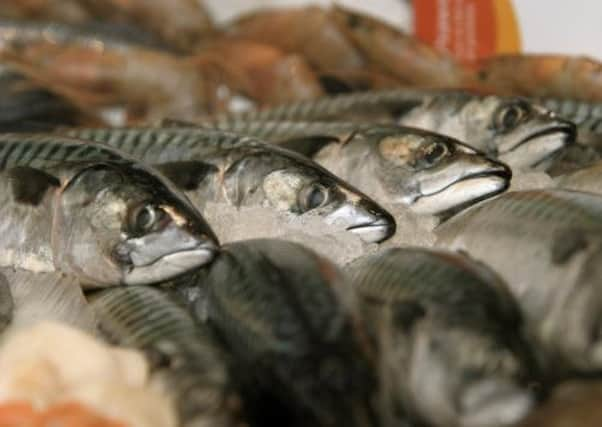Shetland fishermen slam EU over mackerel ‘pirates’


Marine scientists from ICES (International Council for the Exploration of the Seas) recommended earlier this month that the total allowable catch (TAC) for mackerel should rise to 889,886 tonnes in 2014 – an increase of two thirds from the advice they gave last year.
The Shetland Fishermen’s Association claimed today that the European Commission was preparing to hand the rebel Nordic fleets of Iceland and the Faroes almost 30 per cent of the total landings, despite their continued refusal to enter into an international agreement on the division of the catches.
Advertisement
Hide AdAdvertisement
Hide AdMackerel is the Scottish fishing industry’s single most valuable stock, worth £131 million last year, and the Shetland Fishermen’s Association represents one third of Britain’s pelagic vessels.
The association’s executive officer Simon Collins said the SFA understood the Commission was proposing a revised international agreement that could hand Iceland a rise in its share of the new TAC from zero to 11.9 per cent. It was also understood that, pending a positive response from Iceland, the Faroes would be offered a similar deal.
Speaking ahead of tomorrow’s meeting of the EU Fisheries Council, Mr Collins declared: “While everyone wants an end to the dispute and to see a return to stability, this deal is quite simply a reward for piracy on the part of Iceland and Faroe.
“These countries – where there had been relatively little mackerel fishing in the past – have awarded themselves huge quota increases in recent years outside the bounds of recognised international agreement. They have deliberately flouted the responsible management system that was set up to ensure the sustainability of the mackerel stock in the North east Atlantic.”
Mr Collins said he accepted that Shetland and other Scottish pelagic skippers were also set to be given an increase in the quantity of fish they can catch next year, but added that their share of overall mackerel quota would be “severely reduced.” He has urged Richard Lochhead, the Scottish Fisheries Minister, and George Eustice, the new UK Fisheries Minister, to oppose any deal that would reward the Faroese and Icelandic pelagic fleets.
Sigurgeir Þorgeirsson, Iceland’s chief negotiator for mackerel catch quotas, has called for Iceland to be given a major share of the total mackerel catch.
He said: “The advice for total allowable catch 2014 issued by ICES recognises the fact that a massive amount of mackerel inhabit the Northeast Atlantic, including in Iceland’s waters. It can hardly be doubted that the grossly increased north- and north-westerly migration of the stock into our rich feeding grounds plays an important role in maintaining its size and healthy state. We believe strongly that mackerel catch quotas must be grounded in scientific data and an agreement on how to share the stock must reflect these realities.”
Mr Lochhead said: “There is no formal proposal so any discussion over numbers or what an agreement may look like is pure speculation at this stage. Any potential agreement won’t become apparent until next week’s Coastal States negotiations on mackerel.”
Advertisement
Hide AdAdvertisement
Hide AdHe added: “I would, of course, like to see resolution to this international dispute between the EU and Iceland and Faroes, but I believe that any deal must have Scotland’s interests at its heart and I will continue working closely with our industry to ensure that it does. Whilst I am willing to agree a deal I will not do so at any price.”
Mr Lochhead said he would also be fighting to prevent any further cuts in days at sea being imposed on the Scottish fleet in the run-up to the key end of year negotiations in Brussels in December.
He warned that a further reduction in the number of days fishermen can go to sea would be devastating for Scotland’s already fragile fishing industry.
Mr Lochhead said: “Preventing a cut to days at sea allowance and, if the science supports it, securing an increase in cod TAC, are two of our key negotiating priorities as we enter this important phase leading up to the crunch Fisheries Council in December and I will be doing everything I can to secure a favourable outcome for Scotland’s fishermen.”